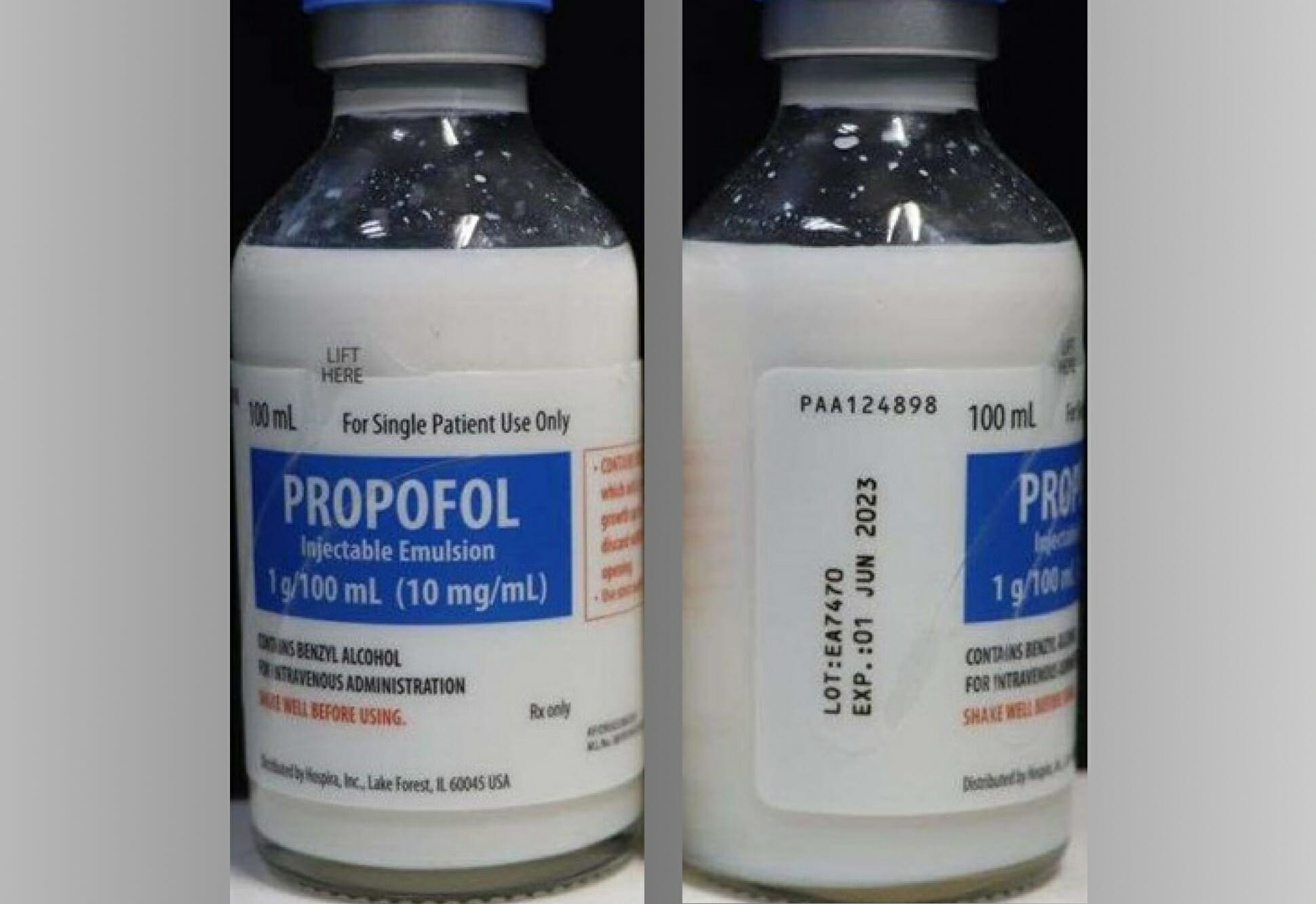Propofol, commonly known as “milk of amnesia,” is a widely used anesthetic crucial for various medical procedures. While generally safe when administered correctly, excessive doses can lead to acute propofol intoxication, a serious condition with potentially life-threatening consequences. This article provides a comprehensive overview of acute propofol intoxication, encompassing its causes, symptoms, diagnosis, treatment, and prevention.
Understanding the Risks of Propofol
Propofol’s primary function is to induce sedation and unconsciousness by amplifying the effects of GABA, a calming neurotransmitter in the brain. This makes it invaluable for surgeries and other medical interventions. However, like any potent medication, propofol carries risks, especially with improper administration or excessive dosages.
What is Acute Propofol Intoxication?
Acute propofol intoxication occurs when propofol levels in the body exceed the therapeutic range, leading to systemic toxicity. This differs significantly from the normal drowsiness and amnesia experienced during routine procedures under proper propofol sedation. Acute intoxication represents a serious medical emergency demanding immediate attention.
Causes of Intoxication
Several factors can contribute to acute propofol intoxication:
- Accidental Overdose: Errors in dosage calculation or administration can inadvertently lead to intoxication.
- Improper Administration: Infusing propofol too rapidly can overwhelm the body’s ability to process the drug, increasing the risk of toxicity. Quickly and accurately determine medication dosages and equipment sizes in emergencies with the Broselow Tape.
- Intentional Misuse/Abuse: Propofol can be misused recreationally or in suicide attempts, leading to intentional overdose.
- Drug Interactions: Concurrent use of other central nervous system depressants, such as atracurium, can interact poorly with propofol and make toxicity more likely. Administering intramuscular injections can be tricky; learn the proper technique for the dorsogluteal site to ensure medication efficacy and patient safety.
- Patient-Specific Factors: Critically ill patients, especially those with pre-existing organ dysfunction or metabolic issues, are more vulnerable to propofol’s toxic effects. Young age and surprisingly, even a low carbohydrate intake have been suggested as potential risk factors, although more research is needed to confirm these associations.
Recognizing the Symptoms
The symptoms of acute propofol intoxication vary depending on the severity of the overdose. Mild cases may present with:
- Hypotension: Low blood pressure.
- Bradycardia: Slow heart rate.
- Respiratory Depression: Slow and shallow breathing, potentially leading to respiratory arrest.
More severe cases can involve:
- Organ Dysfunction: Kidney and liver failure are particularly concerning complications.
- Metabolic Acidosis: A dangerous buildup of acid in the blood.
- Rhabdomyolysis: Breakdown of muscle tissue.
- Cardiac Arrhythmias: Irregular heartbeats, potentially leading to cardiac arrest.
Propofol Infusion Syndrome (PRIS)
Propofol Infusion Syndrome (PRIS) represents the most severe form of propofol toxicity. This rare but life-threatening complication is associated with prolonged high-dose infusions, especially in critically ill patients. PRIS is characterized by a combination of:
- Cardiac Failure: The heart’s inability to pump effectively.
- Metabolic Acidosis: Severe acid buildup in the blood.
- Rhabdomyolysis: Extensive muscle breakdown.
- Hyperkalemia: Elevated potassium levels.
- Renal Failure: Kidney failure.
Early recognition and aggressive treatment of PRIS are critical for survival.
Diagnosis and Treatment
Diagnosing acute propofol intoxication involves a comprehensive evaluation of the patient’s clinical presentation, medical history (including propofol dosage and duration), and laboratory findings. Blood tests can reveal metabolic imbalances, organ damage markers, and electrolyte abnormalities.
Unfortunately, there’s no specific antidote for propofol. Treatment focuses on supportive care:
- Discontinuation of Propofol: The immediate and most crucial step is to stop the propofol infusion.
- Respiratory Support: Mechanical ventilation may be necessary to assist breathing.
- Cardiovascular Support: Medications and other interventions are used to stabilize blood pressure and heart function.
- Management of Complications: Dialysis may be required for kidney failure, and other specific treatments are implemented based on the presenting complications.
Prevention is Key
Preventing acute propofol intoxication hinges on careful dosing, continuous monitoring, and adherence to established safety protocols:
- Precise Dosing: Calculating and administering the correct dose based on the patient’s individual characteristics and the specific procedure is paramount.
- Continuous Monitoring: Vigilantly observing the patient’s vital signs (heart rate, blood pressure, breathing) allows for prompt detection and management of any adverse effects.
- Education and Training: Thorough training for healthcare professionals emphasizing proper administration techniques and potential risks is essential. Open communication with patients about the benefits and risks of propofol is also crucial.
Dr. Aglio (anesthesiologist): “We’re using it like crazy.” (Regarding the widespread use of propofol in anesthesiology.)
This statement underscores the ubiquitous use of propofol in modern medicine while highlighting the vital importance of vigilance and stringent safety protocols to minimize the risks of acute propofol intoxication. Ongoing research is essential to further refine our understanding of propofol’s complex effects and develop even safer practices for its administration.
Future Directions and Ongoing Research
While significant progress has been made in understanding and managing acute propofol intoxication, research continues to explore:
- Development of a Propofol Antagonist: A specific antidote to reverse propofol’s effects would be a significant advancement in managing overdoses.
- Improved Monitoring Techniques: Advanced monitoring technologies could enable earlier detection of subtle signs of toxicity, allowing for faster intervention.
- Personalized Medicine Approaches: Research into genetic and other individual factors that influence susceptibility to propofol toxicity could pave the way for more personalized dosing strategies.
By adhering to best practices, continuously refining our understanding through research, and fostering open communication between healthcare providers and patients, we can continue to harness the benefits of propofol while mitigating the risks associated with its use.
- Georgia Platform: A Southern Strategy, 1850s - March 31, 2025
- How many weeks is 40 days: Quick Conversion Guide for Accurate Results - March 31, 2025
- How many feet is 300 meters? 984 Feet: Understand Length Conversions Easily - March 31, 2025
















